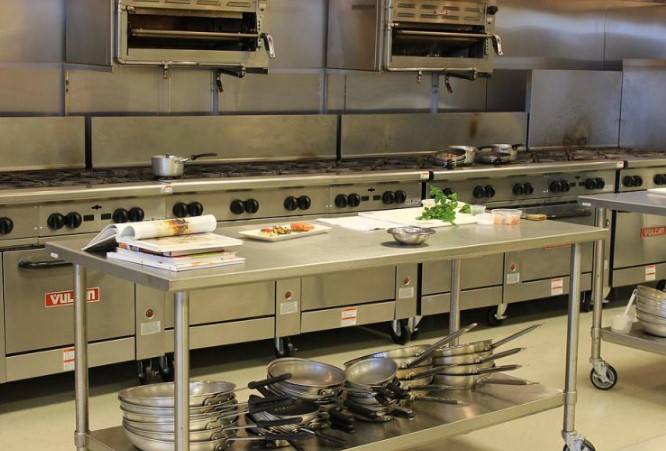The Vital Importance Of Commercial Kitchen Ventilation: A Comprehensive Overview

Commercial kitchen ventilation plays an essential role in ensuring the safety, efficiency, and overall success of a foodservice establishment. As per experts in the field Martin Stainless Steel more than simply eliminating smoke and odors from the air, commercial kitchen ventilation serves an array of essential functions that benefit both kitchen staff and patrons alike. In this article we explore why these systems should be integral parts of any professional culinary environment.
Health and Safety
Commercial kitchen ventilation is crucial to creating a healthy and safe working environment. Cooking processes release byproducts such as smoke, grease particles, steam and potentially harmful gasses including carbon monoxide; without proper ventilation systems these contaminants could accumulate leading to poor air quality and endangering both staff and patrons alike. Properly designed ventilation systems extract and remove these pollutants quickly reducing risks such as respiratory illness, eye irritation and potential fire hazards.
Fire Prevention
Kitchen fires pose an ever-present risk in commercial kitchens, with open flames, hot cooking surfaces and flammable materials constantly present posing the potential risk. Well-designed ventilation systems help mitigate this risk by effectively capturing and extracting grease-laden air that circulates within a facility reducing likelihood of buildup on surfaces, exhaust hoods, ductwork etc. Additionally, regular maintenance and cleaning ensure compliance with fire safety standards and regulations.
Thermal Comfort
Cooking appliances generate high levels of heat that can make working conditions unpleasant for kitchen staff. Adequate ventilation helps regulate temperature and remove excess heat, creating a comfortable yet productive working environment for both employees and kitchen staff alike. A well-designed system can effectively extract hot air to lower overall ambient temperature in the kitchen while simultaneously minimizing discomfort due to excessive heat or fatigue caused by working conditions in an uncomfortable kitchen environment. Maintaining optimal thermal comfort increases employee morale, reduces heat-related illnesses risk, while simultaneously increasing employee morale while simultaneously increasing employee morale while simultaneously increasing employee morale while increasing employee morale as well as productivity and increasing employee morale at work.
Odor Control
Food preparation can produce strong and pervasive odors that pervade throughout a building. Effective kitchen ventilation systems come equipped with features designed to eliminate or minimize these unpleasant scents – such as filters or carbon scrubbers – in order to eliminate or lessen them and maintain an enjoyable dining experience for customers while creating an inviting atmosphere. By filtering and collecting cooking odors into storage bins within the system, offensive scents won’t diffuse into dining areas, improving customer experiences while creating an enhanced dining experience and maintaining a pleasant ambiance for customers – creating an overall dining experience while creating an enjoyable dining experience and pleasant ambiance for customers while creating an enjoyable dining experience and atmosphere for customers while creating a positive dining experience and creating an overall dining experience in dining areas of its own.
Energy Efficiency
Commercial kitchen ventilation systems use an immense amount of energy due to constant airflow requirements. But advanced technologies and design considerations can optimize energy efficiency – for instance through variable speed controls, demand-based ventilation systems and heat recovery systems that help lower energy consumption while not compromising air quality or performance. Energy-efficient ventilation systems not only save businesses money in terms of cost savings but also support sustainable practices and environmental responsibility.
Conclusion
Commercial kitchen ventilation is of great significance due to its impact on health and safety, fire prevention, thermal comfort, odor control and energy efficiency. An investment in an effective ventilation system not only ensures regulatory compliance but also fosters a healthier work environment while improving customer satisfaction levels and operational efficiencies within the foodservice industry.




























